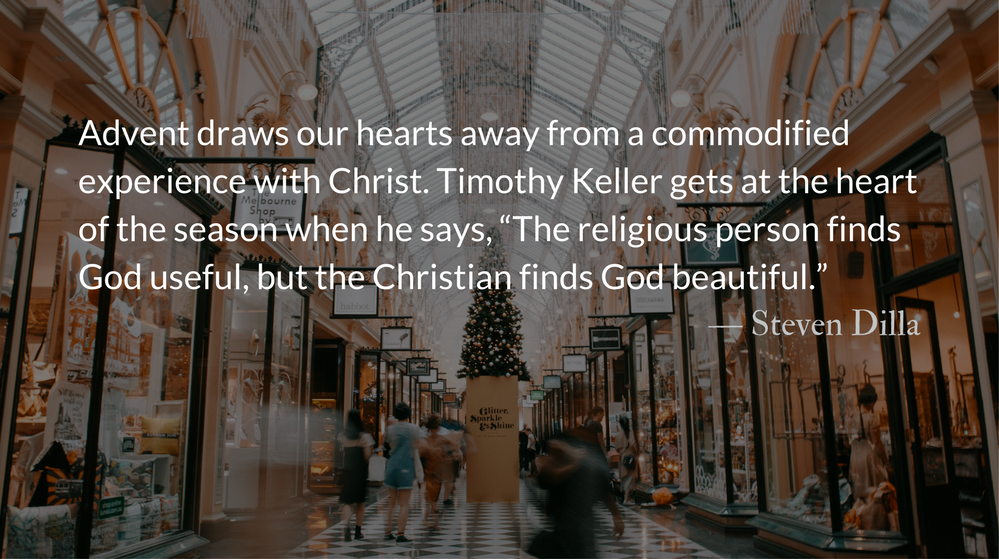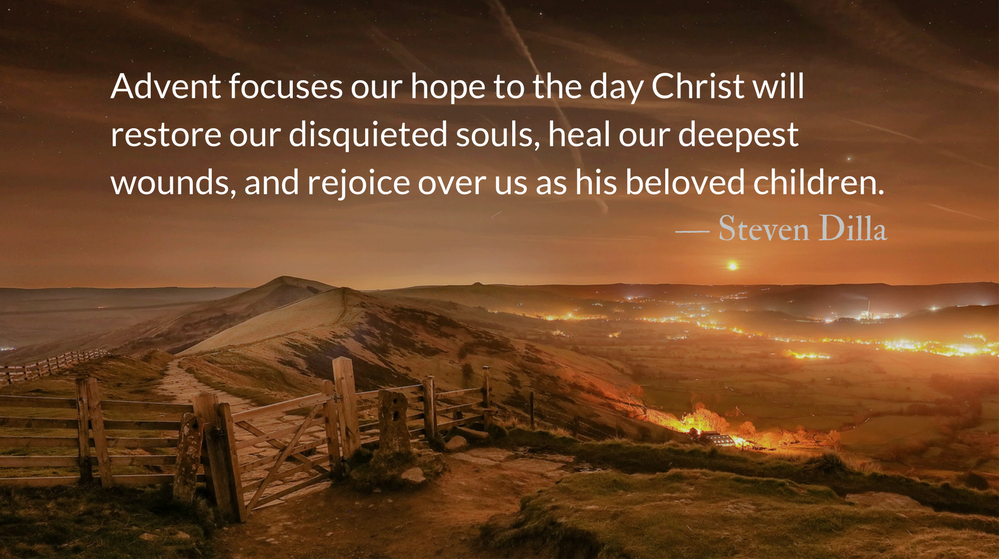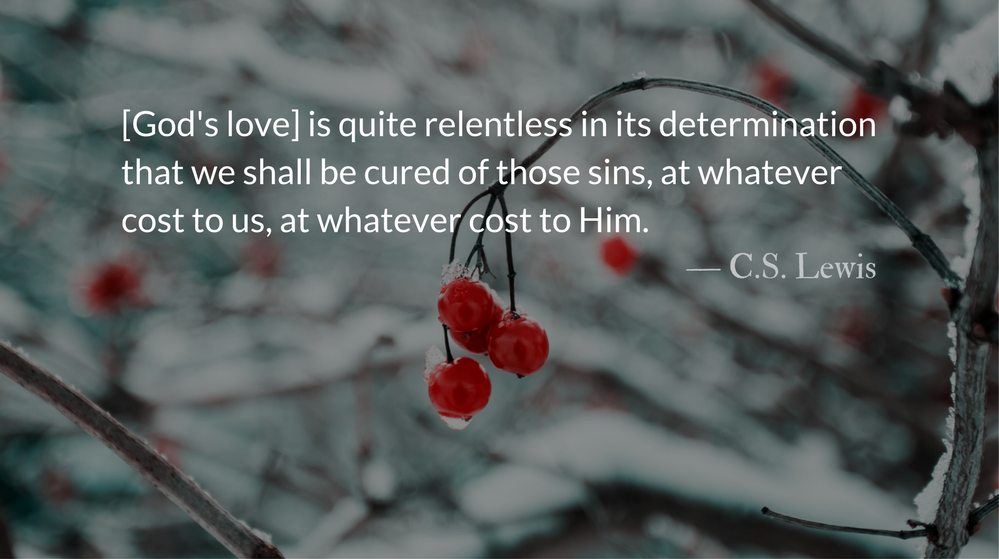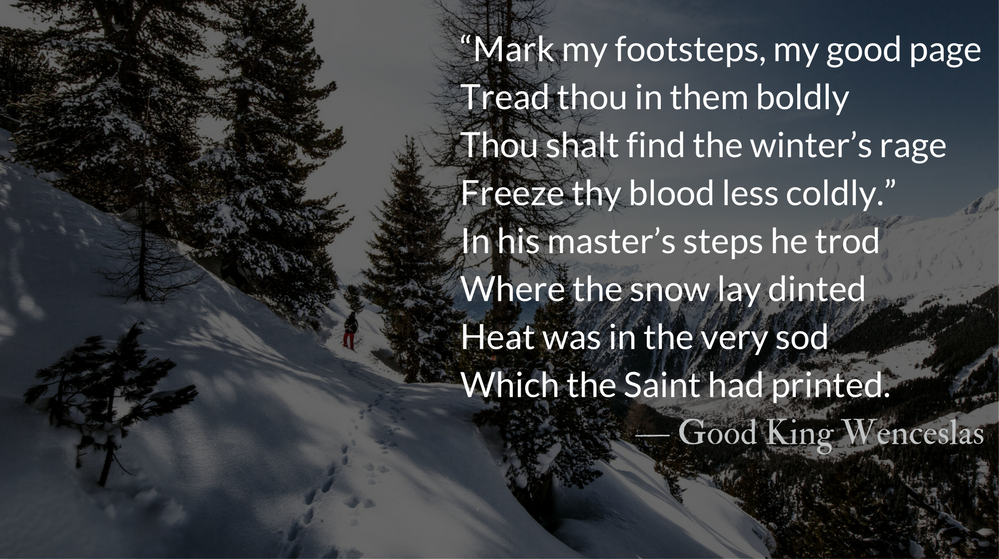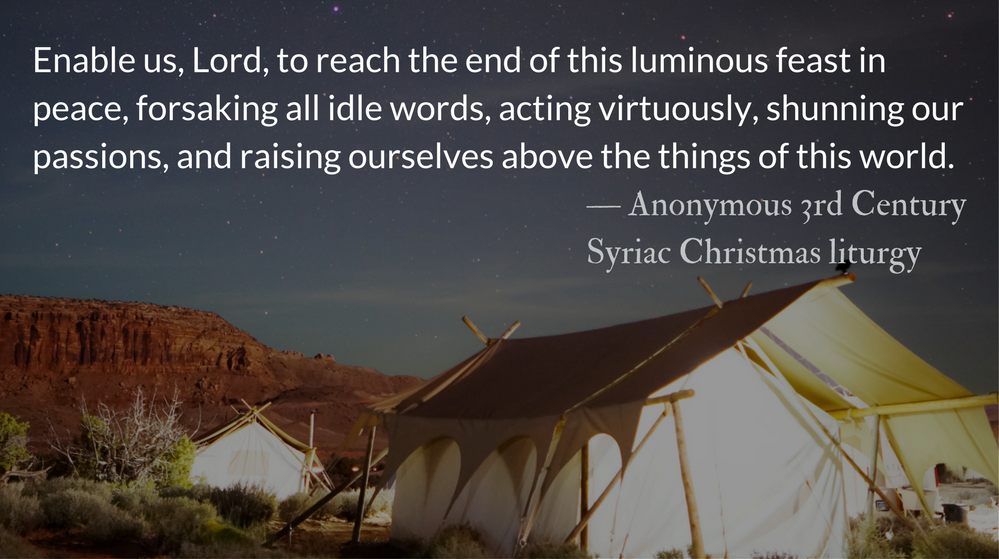Reflection: All Things New :: Advent’s Love
The Park Forum
“Experiential purchases (money spent on doing) tend to provide more enduring happiness than material purchases (money spent on having),” observes Cornell University phycologist Thomas Gilovich. Research over the past decade has converted this reality from hypothesis to near-universal belief.
It is no coincidence that Google searches for spiritual experiences, while remaining exclusively a U.S. search term, have maintained a steady clip over the same decade. This, of course, isn’t a bad trend—God’s love is irresistibly wonderful.
In his book God’s Love, David Powlison explores the glory:
God’s love actively does you good. His love is full of blood, sweat, tears, and cries. He suffered for you. He fights for you, defending the afflicted. He fights with you, pursuing you in powerful tenderness.
The experience of God’s love draws us into relationship with him. This is where we have to fight our cultural instincts. Experiential purchases are transactional—we pay to receive a benefit which outlasts material purchases. If all we want is an experience with God we’ll miss the depth of his relationship with us.
Advent draws our hearts away from a commodified experience with Christ. Timothy Keller gets at the heart of the season when he says, “The religious person finds God useful, but the Christian finds God beautiful.”
How are we to rest in the beauty of God’s love? Advent reminds us it’s by setting the tune of our heart toward God’s return. Dr. Gilovich’s research came to the conclusion that, “Waiting for experiences tends to be more positive than waiting for possessions.” No wonder the language of Heaven, which lacks details of material inheritance, is dominated by our relationship and proximity to the Father.
Behold, the dwelling place of God is with man. He will dwell with them, and they will be his people, and God himself will be with them as their God. He will wipe away every tear from their eyes, and death shall be no more, neither shall there be mourning, nor crying, nor pain anymore, for the former things have passed away. — Revelation 21.3-4
Listen: The First Noel by Lady Antebellum (3:23)
The Call to Prayer
Worship the Lord in the beauty of holiness; let the whole earth tremble before him. — Psalm 96.9
– From Christmastide: Prayers for Advent Through Epiphany from The Divine Hours by Phyllis Tickle.
Full prayer available online and in print.
Today’s Readings
2 Chronicles 7 (Listen – 4:07)
2 John (Listen – 1:50)

